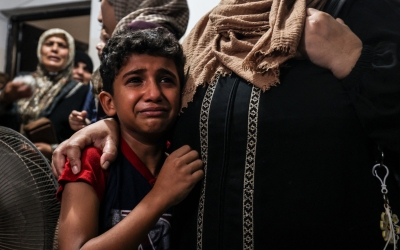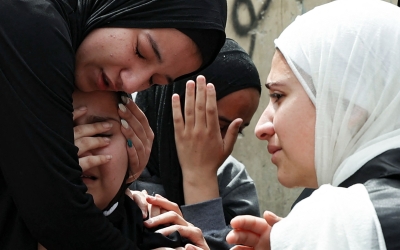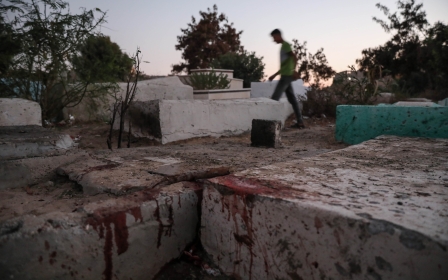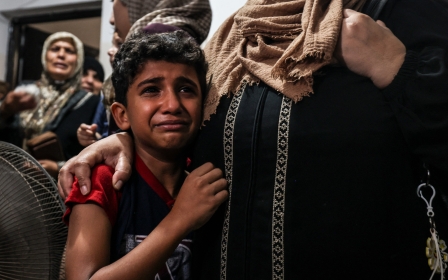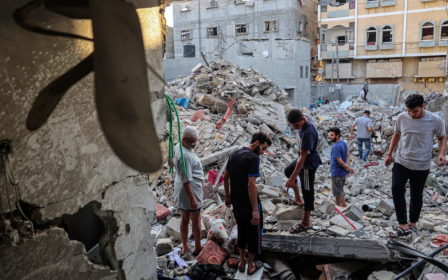Israel-Gaza: Social media companies face accusations of silencing Palestinian voices
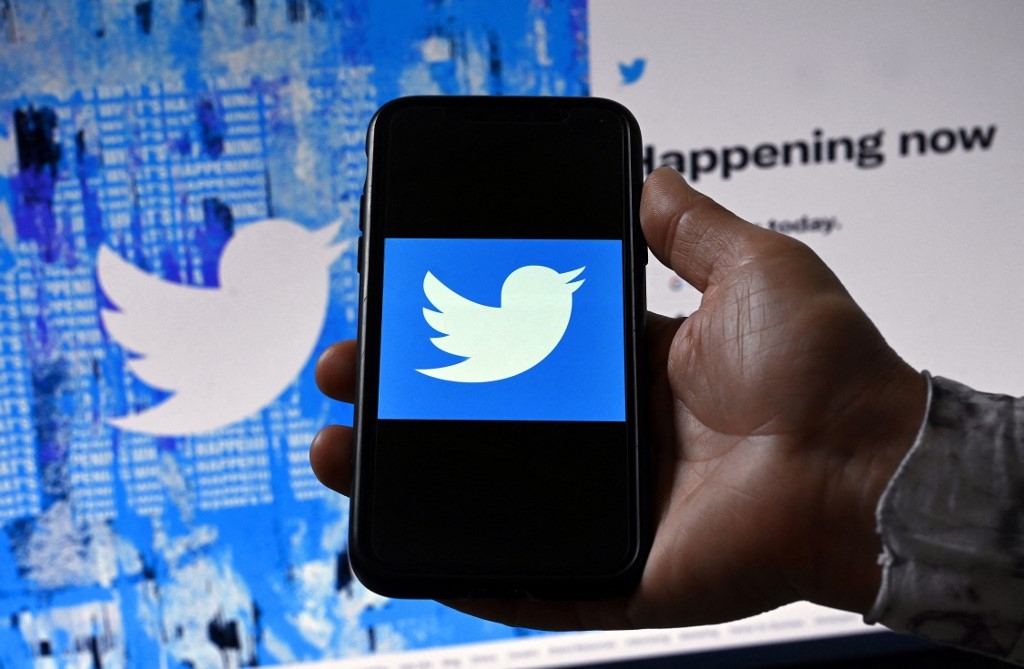
Palestinian activists have claimed that social media giants have engaged in digital censorship during the latest Israeli assault on occupied Gaza that left 44 dead, including 15 children.
As Palestinians in Gaza struggled to find shelter from Israeli rockets, in the digital space, Palestinian rights activists grappled online with social media companies' attempts to "silence" them.
"This is not a new phenomenon," said Mona Shtaya, an advocacy advisor of 7amleh, the Arab Center for the Advancement of Social Media.
"This has been happening for years now, and it's contributing to silencing our voice and restricting us from documenting human rights violations and war crimes that we are exposed to," Shtaya told Middle East Eye.
The Palestinian Observatory of Digital Rights Violations, project in 7amleh, was set up to document and bring attention to the growing digital rights violations Palestinians face at the hands of social media companies that shape public views on the conflict.
'For a long time, activists were changing the way they are writing words and using stickers..But this is exhausting'
- Mona Shtaya, Arab Center for the Advancement of Social Media
Activist and hip-hop artist Lowkey took to Twitter lambasting Instagram for censoring pictures of Alaa Abdullah Riyad Qaddoum, the five-year-old girl killed by an Israel strike in Gaza over the weekend. Shtaya called such interference in bringing attention to Israeli crimes "frustrating and unacceptable".
Another activist denounced Twitter for its alleged censorship of his posts.
"I'm finally allowed to tweet after nearly a full day of @Twitter locking my account down under claims of breaking its rules when all I did was live tweet as #Gaza was being attacked," he wrote on his Twitter account.
In the past, Human Rights Watch has slammed digital giants like Facebook, which also owns Instagram, for wrongfully "suppressing" content posted by Palestinians and their supporters speaking out about human rights abuses in Israel and Palestine.
The ongoing Russian-Ukrainian war has only confirmed for Palestinian activists some of their worst fears about the double standards enforced by large social media companies.
Earlier this year, Meta, the rebranded company behind Facebook, Instagram, and WhatsApp, told staff that anti-Russian hate speech would be permitted on its platform.
"In the case of Russia-Ukraine, we've seen how tech giants acknowledged the Ukrainians' right to self-defence and allowed them to share hate speech against Russian politicians, the army, and the president, which supported them and their rights," said Shtaya.
Meta has also, in the past, suspended its rules on hate speech regarding Iranians using the phrase "death to Khamenei" after deciding that it was in the "public interest".
Such social media policies reflect, in part, an understanding of the power imbalance between civilians facing violence at the hand of much more powerful state authorities. It also aligns social media giants with US foreign policy objectives, unlike those of Israel, where the US is a stalwart supporter.
"There is a huge difference when we talk about over-enforcing the Palestinian content and under-enforcing the Israeli content," said Shtaya. "Israel is an occupier, and Palestinians are occupied."
Such anti-Palestinian policies "means censoring the occupied people's narrative is contributing to silencing, stereotyping them and denying them their right to freedom of expression," Shtaya pointed out.
Self-censorship 'exhausting'
In the last two years, Shtaya's organisation, 7amleh, has documented more than 1,400 complaints of social media companies restricting Palestinian-related content. The preferred method of limiting Palestinian content has been suspending accounts or forcing them to remove their posts.
Palestinian activists are increasingly engaged in a cat-and-mouse game with social media companies as they seek to document rights abuses.
"For a long time, activists were changing the way they are writing words and using stickers and sometimes writing without dots," said Shtaya. "But this is exhausting and shouldn't continue. Palestinians, like other users, should be able to use the platforms normally."
The Israeli government, in particular, has been exceptionally adept and aggressive in getting social media companies to remove Palestinian content as it seeks to shape the online narrative.
The Israeli Cyber Unit, which operates under the State Attorney's Office, “alerts” Meta that a post “infringes” the company's own terms of use and has been hugely successful in getting online content removed. In a 2018 report, Israel's State Attorney's office even boasted that it had a 90 percent compliance rate among social media companies taking down Palestinian content.
Doubts have also been raised regarding the appeal process that Palestinian rights activists have to traverse with social media companies like Meta.
In 2020, the Facebook Oversight Board, in charge of investigating complaints, hired the former Israeli Director General of the Ministry of Justice, Emi Palmo, who would have known about the actions of the State Attorney's Office.
Last year, Meta's Oversight Board recommended that a report be conducted on content moderation regarding Israel and Palestine, but "we are still waiting", said Shtaya.
"This report should be clear on how the Arabic language is moderated differently than the Hebrew language, and thus Palestinians face over-enforcement on these platforms."
Middle East Eye propose une couverture et une analyse indépendantes et incomparables du Moyen-Orient, de l’Afrique du Nord et d’autres régions du monde. Pour en savoir plus sur la reprise de ce contenu et les frais qui s’appliquent, veuillez remplir ce formulaire [en anglais]. Pour en savoir plus sur MEE, cliquez ici [en anglais].


